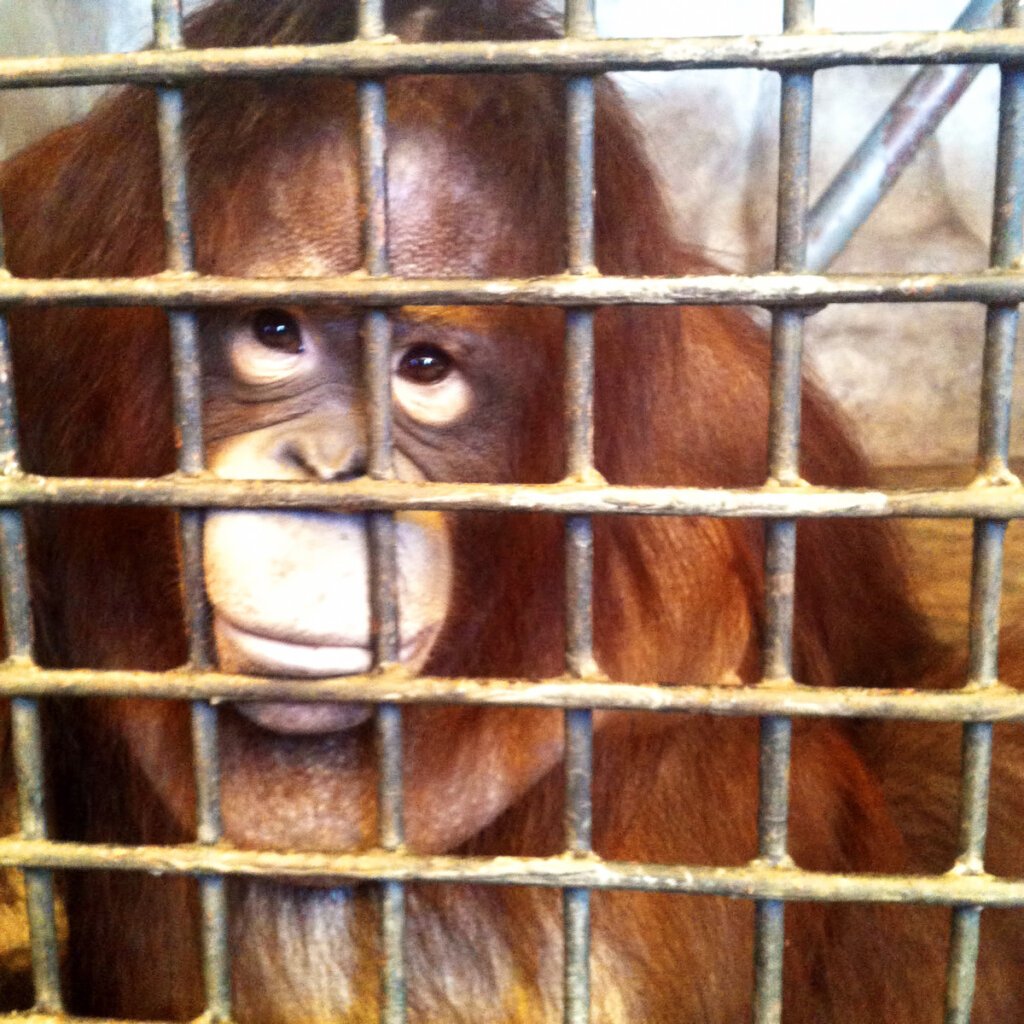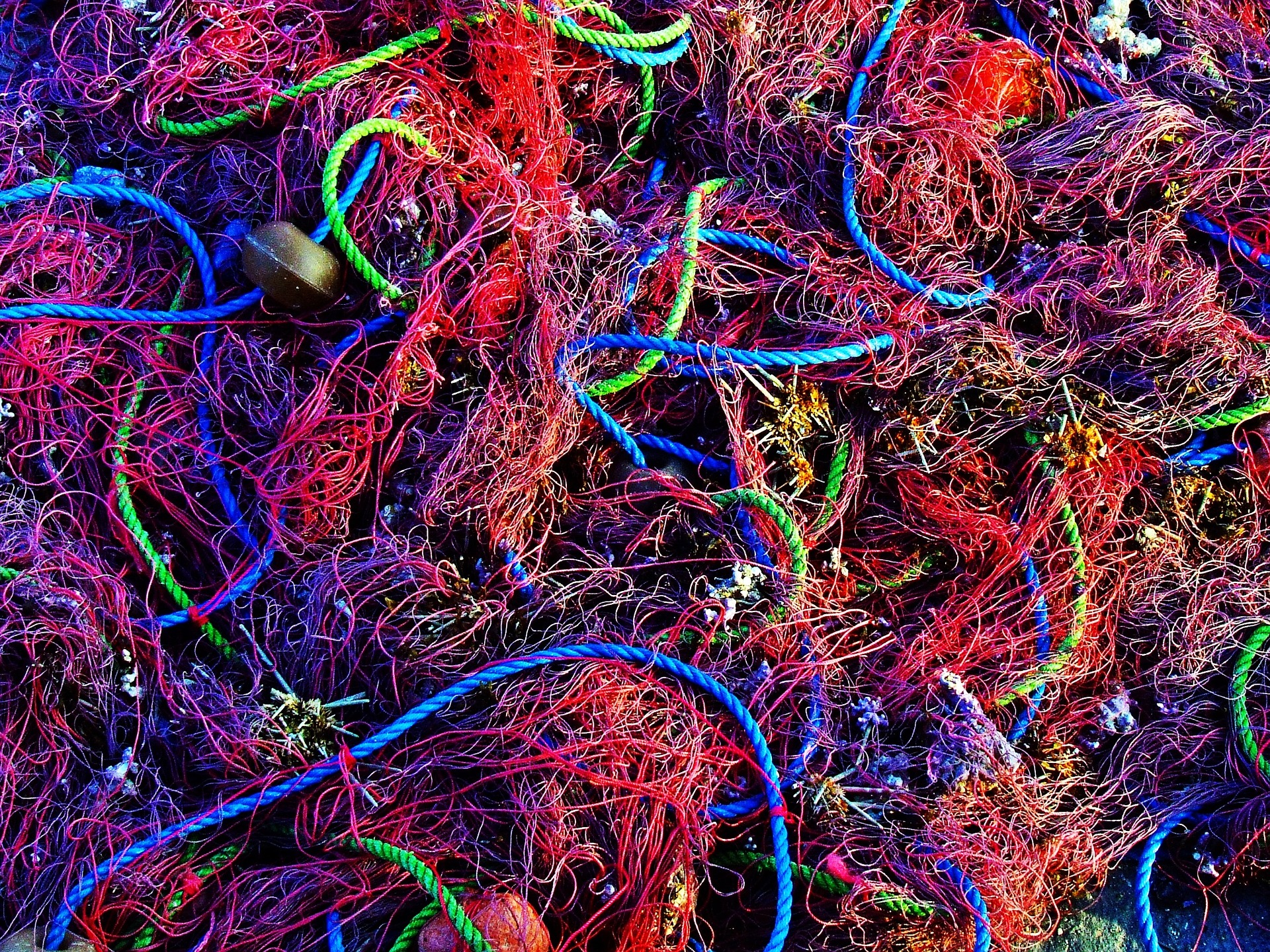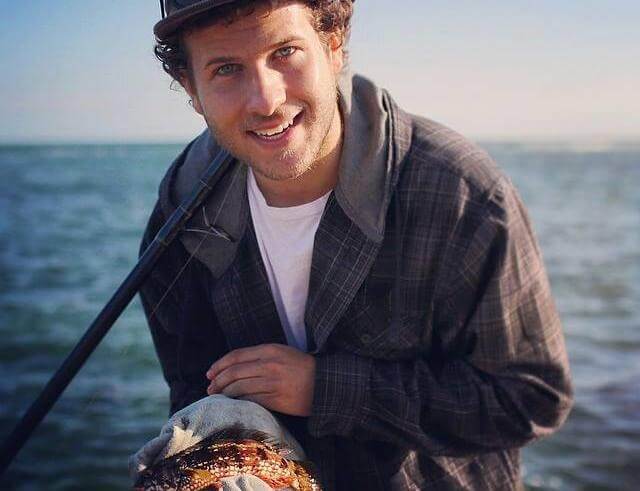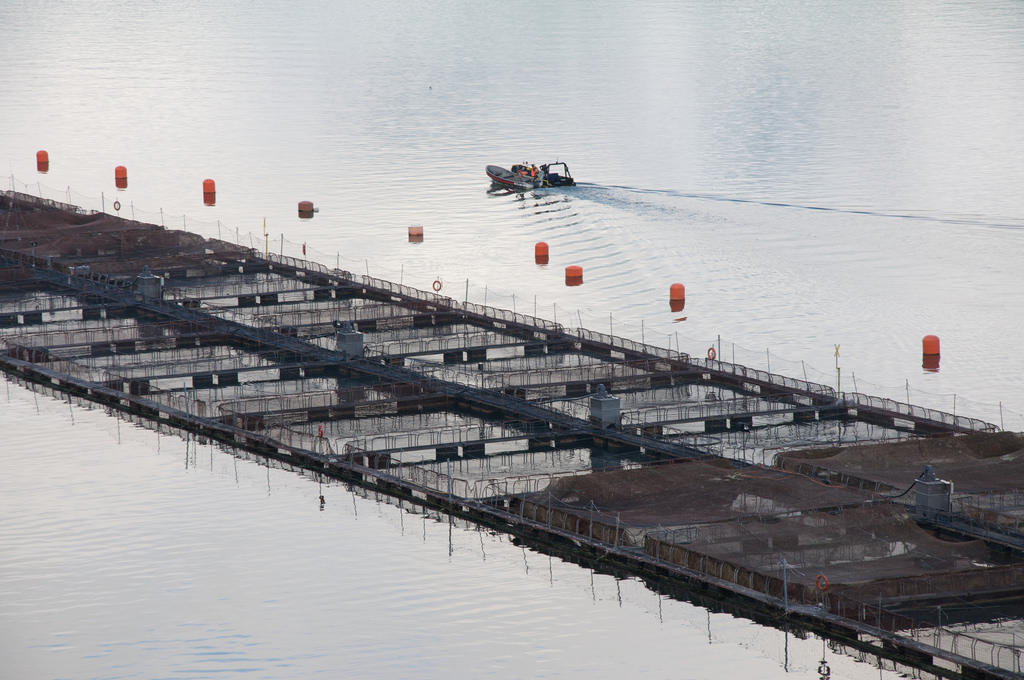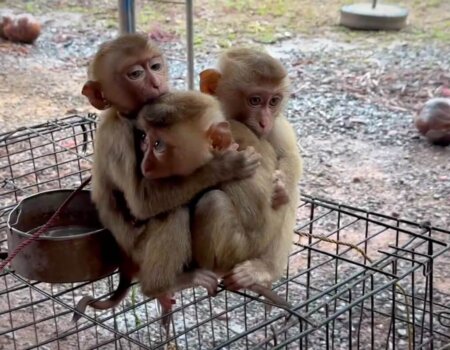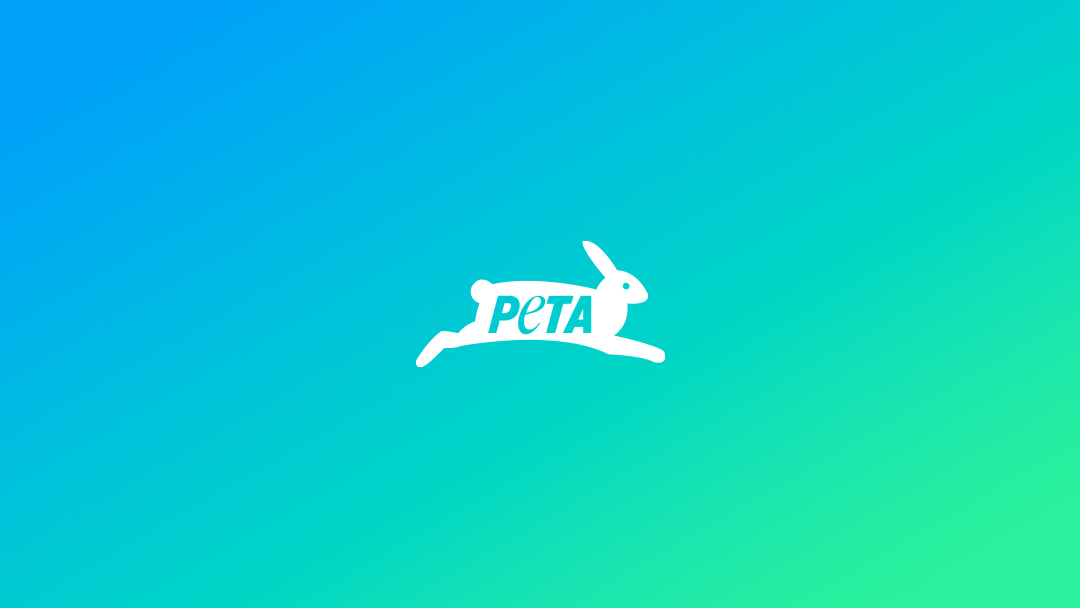
Care About the Ocean? Plastic Straws and Bags Are Just the Tip of the Iceberg
These days, awareness of plastic waste in our oceans is at an all-time high.
All over social media, well-intentioned campaigns are taking aim at items such as single-use plastic straws and bags, which have been shown to pose a risk to aquatic animals like sea turtles. But if you care about keeping animals in the ocean safe, don’t just look to your drinking straw – look to your dinner plate.
In fact, eating fish does far more harm to our oceans than sipping through a straw ever will.
Single-use plastic items such as bags, straws, and other pieces of litter do cause pollution – no doubt – but it’s actually abandoned fishing gear that one recent report named “the most harmful form of marine debris for animals.” This abandoned equipment – also known as “ghostgear” – kills and mutilates millions of sea animals every year. At least 640,000 tonnes of ghost gear are added to our oceans every year. For whales, seals, turtles, and all other marine life, swallowing plastic remnants from ghost gear leads to malnutrition, digestive blockage, and death.
In the Pacific Ocean, there’s a floating patch of garbagetwice the size of France and weighing roughly 80,000 tonnes. While this enormous area, like our oceans in general, is full of plastic, scientists estimate that 46 per cent of the mass of the garbage patch comes from fishing nets alone. And other types of fishing gear account for much of the rest.
So while many people are stocking up on cloth shopping bags and signing petitions to ban single-use plastic straws in order to save the oceans, those who fish (or eat fish) need to re-examine their personal choices, too. It’s simple: less fishing means less fishing gear – abandoned or otherwise.
You Can’t Eat Fish and Call Yourself an Environmentalist
Today’s commercial fishers use enormous nets called trawlers along with electronic equipment and satellite communications to track fish. These huge nets, sometimes miles long, stretch across the ocean, swallowing up everything and everyone, including turtles, seabirds, and dolphins. “Non-target” animals like these make up 40 per cent of the total global fish catch, and the nets further devastate delicate ecosystems already in danger from the effects of climate change.
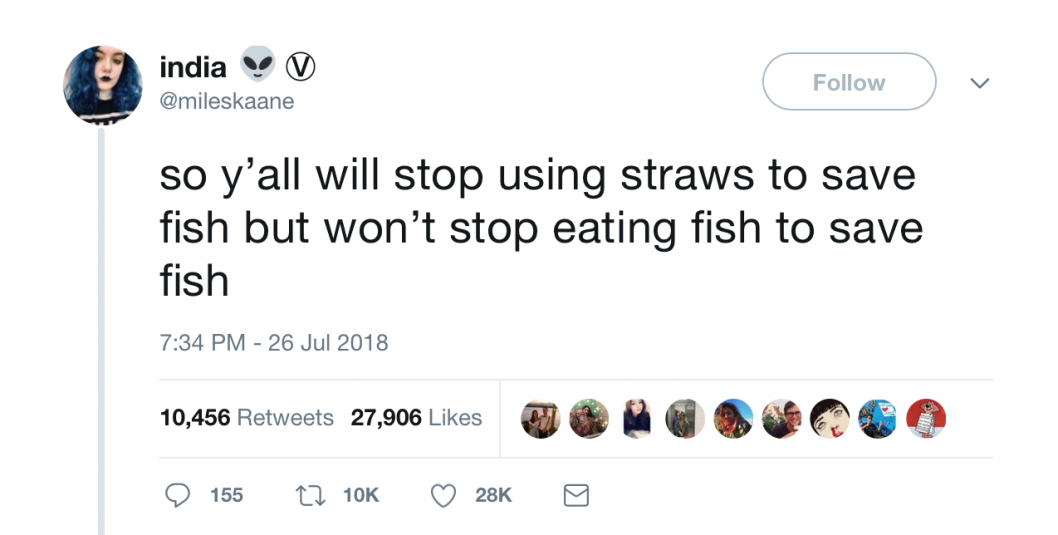
Smithsonian magazine reported that between 10 and 100 billion farmed fish are killed globally every year, and another1 to 3 trillion fish are caught in the wild. According to the UN Food and Agriculture Organisation, 35 per cent of fish caught in the ocean never even make it to a plate.
Today, the number of fish killed in a given year exceeds the total number of humans who have ever existed.
Fish on Aquaculture Farms Don’t Fare Any Better
Even if every single used plastic item were pulled from our oceans, marine species would still suffer on a huge scale as a result of people’s consumption of fish. Commercial fish farms are growing so rapidly that half of fish killed for food are now spending most of their lives crowded into filthy tanks or pens where infection and parasites run rampant. By 2030, it’s estimated that nearly two-thirds of fish slaughtered for food will live and die on these filthy, disease-ridden farms.
Conditions on some farms are so horrendous that many fish may die before farmers can kill and package them for food. Fish who survive are commonly starved before they’re sent to slaughter in order to reduce waste contamination of the water during transport. Salmon, for example, are starved for up to 10 full days.
We Can All Do Our Part to Help Ocean Animals
Of course, we all can and should help reduce plastic pollution by making simple adjustments, such as using reusable shopping bags, avoiding plastic straws, and always throwing garbage away in designated areas. But if we really want to help save marine animals and prevent further suffering, we need to practice environmentally friendly behaviour every single day. That means refusing to support the fishing industry, which is horrifically cruel to animals and hazardous to the environment.
Help Animals in 2025: Renew Your PETA Membership!
